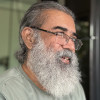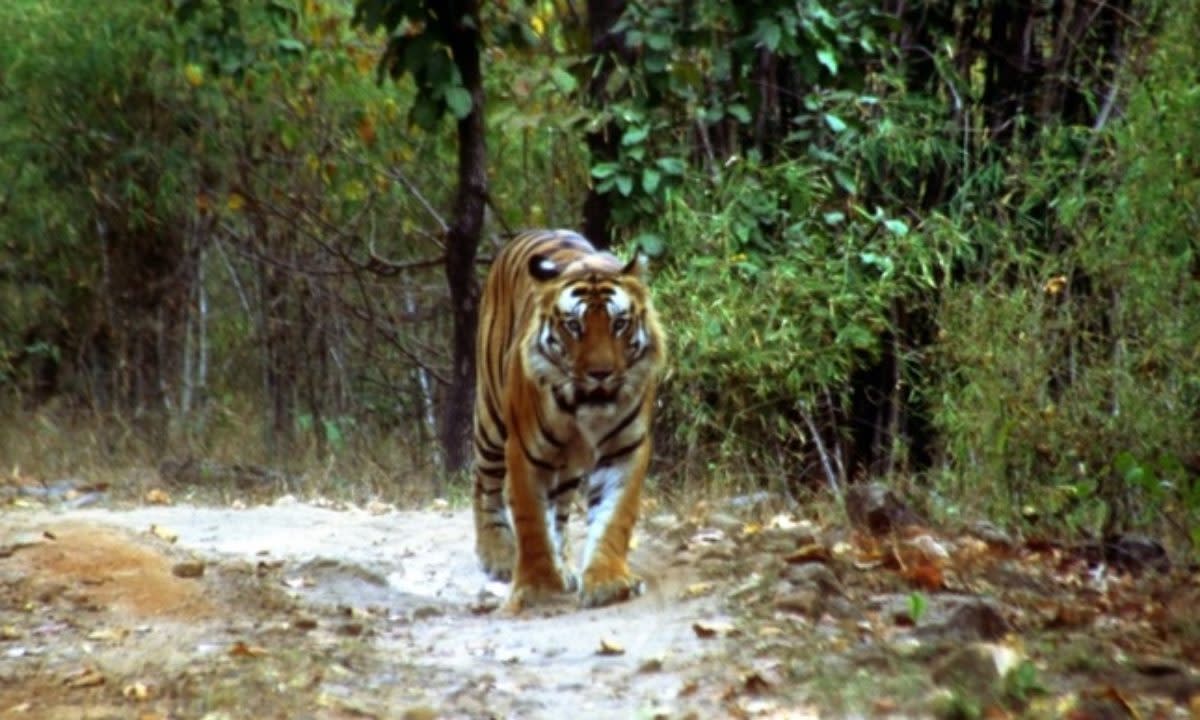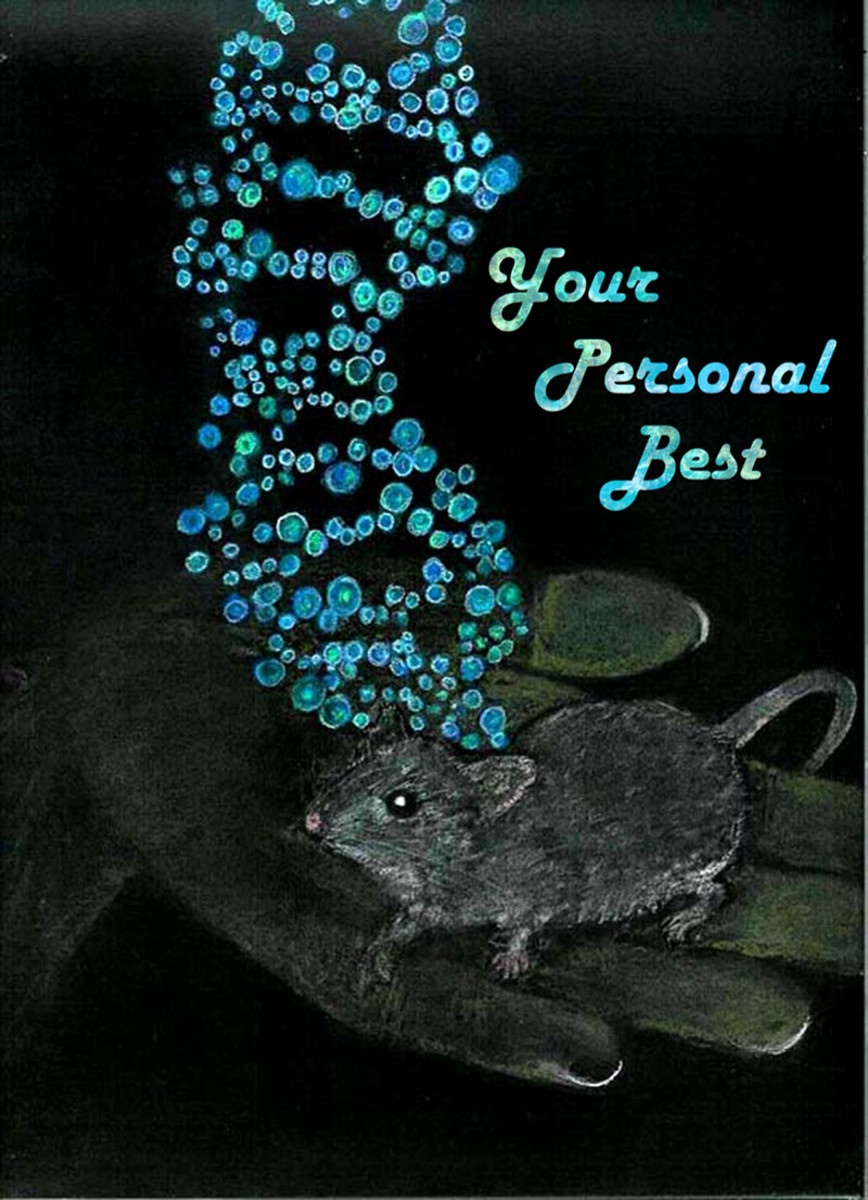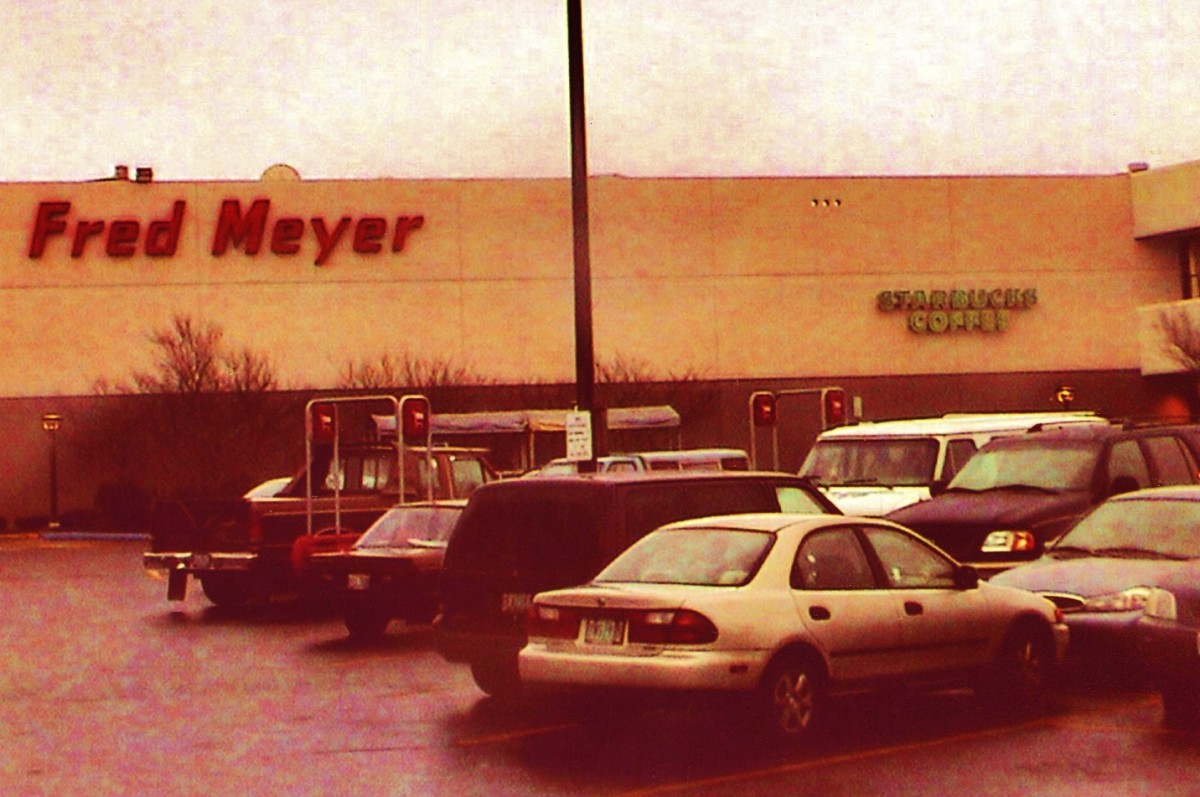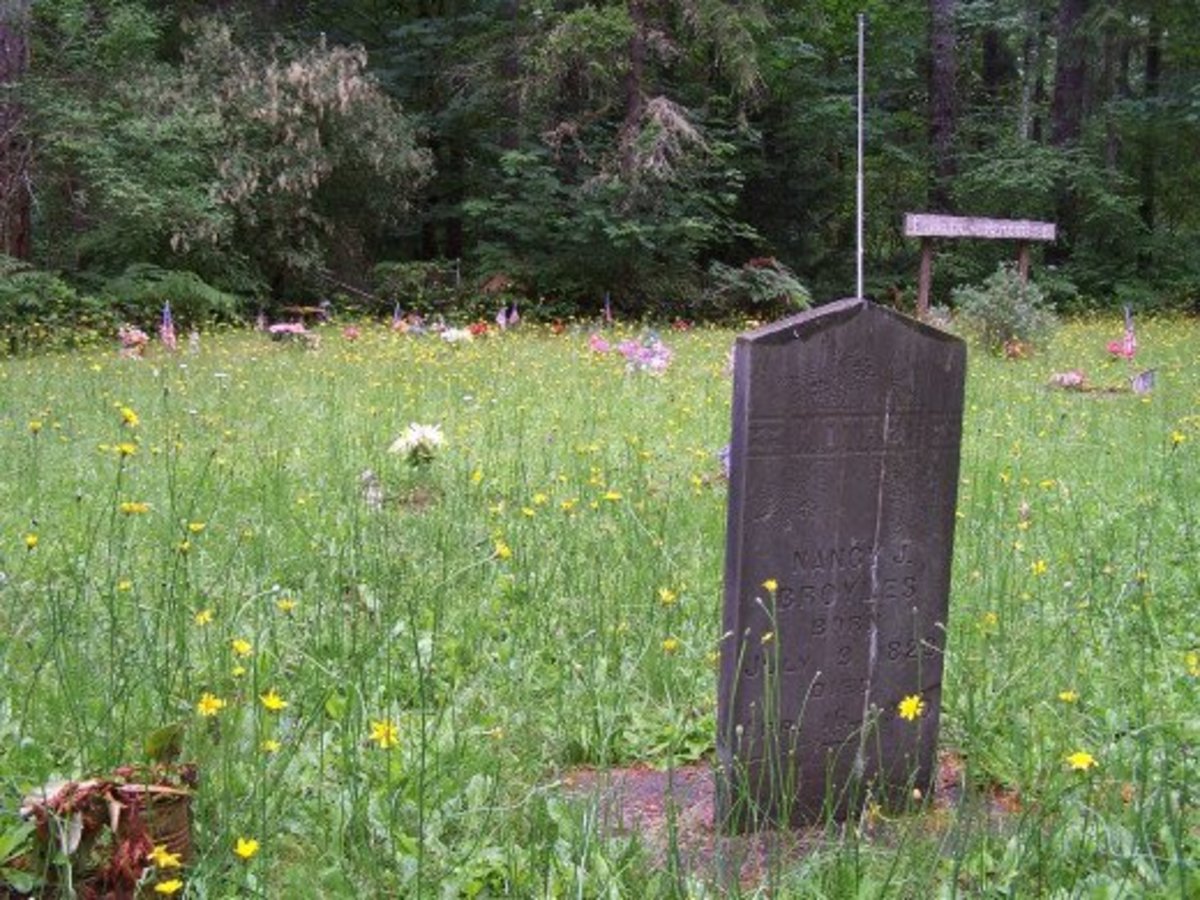- HubPages»
- Books, Literature, and Writing»
- Commercial & Creative Writing»
- Creative Writing
Of Pebbles, Politics, Mind, and Matter: Chapter 6

The story so far:
Young Charuchandra under the tutelage of his formidable assistant Jerry Ranga learns that politics isn't associated with the pursuit of power and wealth alone but is indelibly imprinted and inextricably woven into the activities of everyday living. Read on to find out how Charuchandra unexpectedly neutralizes the threat to his reputation and perhaps life too, from the disparate combine of god-man I and drug-peddler Rajvanshi.
If you wish to revisit the first chapter at this point, please click on the following link:
If you wish to revisit the second chapter at this point, please click on the following link:
If you wish to revisit the third chapter at this point, please click on the following link:
If you wish to revisit the fourth chapter at this point, please click on the following link:
If you wish to revisit the fifth chapter at this point, please click on the following link:
If not, please scroll down to read the sixth chapter titled "The Warped War".
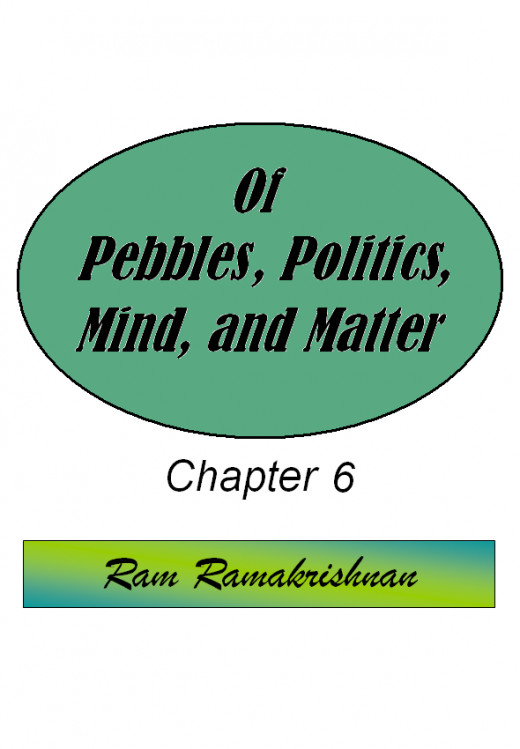
Chapter 6: The Warped War
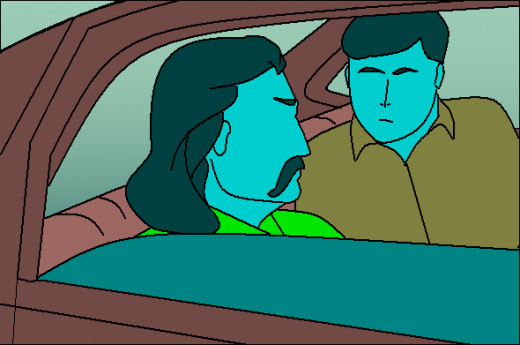
"Charu, you reacted exactly as your uncle would have, in a similar circumstance. Being his brother's son, you should certainly be sharing some of his traits. I am glad to see you so. But I would like to caution you that taking these people head-on would be a folly. They are big guys - you know what I mean. They have been in this occupation for long and are seasoned operators. You should use the elements of stealth and surprise to get at them. If you allow me, I will suggest a plan," said Jerry Ranga. The advice was partly because of the goodwill that he bore for Charu and partly prompted by the consideration of self-preservation. He was sure that if Charu embarked on the path of open confrontation, then all of them would be unceremoniously crushed.
"Fine. Tell me what your plan is," stated Charu, still in an uncharacteristically belligerent mood.
"You cannot take on I directly. Get one of his supporters, the weakest of them all. That will send a message to I that you mean business. At the same time, as you would not have challenged him directly, he would not immediately retaliate," counseled Jerry.
"Agreed. Do you have an idea about who the weakest link is, in I's nefarious network?"
"It is Hemant Rajvanshi."
"You seem to have all details on your fingertips. How do you know so much about I's network?"
"We are in the same trade, aren't we? I mean myself and them. We have to keep abreast with what is going on and who's who, to survive."
"Why didn't you tell me all this earlier?"
"Our realm works strictly on the 'need-to-know' principle, Charu. It is a good rule to follow, if one doesn't want to end up in a gutter, with a slit throat and dead. There was no reason, until now, for you to know all this. But now, there is," explained Jerry.
"You already make me feel like an underworld don," remarked Charu. A day earlier, the thought would have made him shudder. Today, however, there was a strange steeliness in his eyes, voice, and demeanor.
"You have to be ready to play many roles, when you opt to become a people's representative. Managing them isn't an easy task. Most are reasonable and would fall in line, if one were to explain a thing to them with a bit of patience. Some, like god-man I and Rajvanshi, aren't. They only understand the language of power and force, and have to be dealt with accordingly."
"I see that one has to play many roles too being a member of the underworld, Jerry. You are my information gatherer, my army chief, and my advisor," observed Charu, a smile playing on his lips, the first since the morning.
"Good to see that you have got a grip on yourself, Charu. I was afraid that you would do something in your state of fury that would put us all in jeopardy. Now that you understand the situation, let me also caution you, that the operation that you have authorized for us to undertake is going to cost us money and lots of it. A number of personnel have to be deployed and equipment to be bought. You will have to arrange for the funds."
"How do I do that and where do I get it from?"
"You represent your constituency. You are the chairman of a government instituted committee. Draw funds for expenses towards discharging your duties."
"No, Jerry. This is something personal."
"In public life, nothing is personal, Charu. What you are about to begin is for the good of many."
"It is a matter of perspective," argued Charu, still not convinced.
"It is the only practical one. You don't have a choice. You either draw funds and use them, as I have suggested, or be reconciled to I continuing with his atrocities."
"How will I account for all that is spent?"
"There are ways for that too, Charu. But let us take up things, one at a time. Not only are there ways to account for all expenditures, if you were to be successful in exposing Hemant Rajvanshi and the public takes notice and approves of it, no one will be asking you for accounts. Instead, money will flow into your coffers from all directions."
"No wonder there is such a strong nexus between politicians and criminals," remarked Charu. "They seem to be working on almost similar principles."
"You are right. It is indeed so. Both deal and manage the general populace. When either of them is principled and plays to rules, they flourish, make a name for themselves, and are revered. When they don't, they perish. There is goodness and badness on both sides of the perceptional divide. If you ask me, there is no divide," opined Jerry.
"That is the second time this morning that you have made me feel like an underworld don. You almost have me convinced, that I am one in the making, if not already made."
"You are a good human being, Charu. A little eccentric, and occasionally naïve, perhaps. All other sobriquets are debatable. I strongly suggest that you stop worrying about such trivialities and get on with the job. You are entitled to draw money from the government coffers for public good. Go and do it, and spend it wisely."
"I will have to depend on your wisdom, Jerry, to begin with. Can I count on your support?"
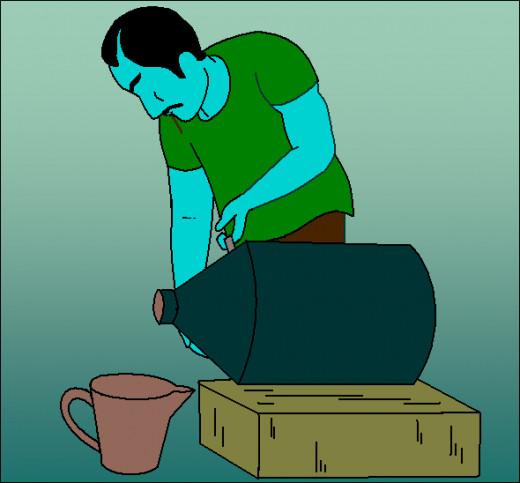
"You have it, Charu. Unstinted and unquestioned," replied Jerry Ranga.
"Thank you, Jerry. I will call you soon," said Charu, getting into his vehicle. "To my office," he told the chauffeur, who could discern from the voice and mannerisms that the man gracing the rear seat had changed much since the morning.
* * *
Hemant Rajvanshi started his independent life as a small-time bootlegger. A more appropriate term could have been an "Inner-tuber," for unlike the means adopted by the original bootleggers of concealing hip flasks with alcohol in the legging of boots, Hemant followed the less sophisticated but more lucrative means of carrying cheap alcohol in the inner tubes of vehicle tires. His rise up the ranks had been pretty fast. From a courier, to an organizer, to a distributor, and finally to a manufacturer of cheap liquor, took him about three years, roughly at the rate of a ladder-rung a year. To be a manufacturer required political patronage and the associated division of largesse. Enterprising young men did not look upon this sharing of profits as a detriment but rather as a new door that opened up the path to other associated business.
Hemant soon diversified into cultivating a range of Acacia plant species and extracting psychedelic drugs from them, which were both used and abused widely. Abuse was invariably associated with higher profits and it was to this market that most of the produce from his ramshackle drug extraction labs went. His increasing prosperity caused his political mentors too to demand a higher and increasingly unreasonable price for their services. Hemant decided to sever his dependence on them by jumping into the political arena himself and by some deft maneuvering, made his way into the legislative assembly as a people's representative. So far, he had hovered about in the twilight zone between the lawful and the unlawful. Success and power, however made him abandon his tenuous foothold in the land of the lawful and establish himself firmly on the more perilous yet materially rewarding side of the divide. He graduated to dealing in banned psychedelic drugs, spurious medicines, fake money... he had a finger in every illicit pie.
It was about the same time that god-man I rose to prominence. His requirement for psychedelic drugs in large quantities brought the two men together. I offered two recipes of nirvana to those who frequented his hermitage. For those who were not willing to take the slightly sluggish road of prayer and meditation, he recommended salvation of the instant kind. There were two large halls in the precincts, dedicated to each of the two stream of seekers. One was always filled with people immersed in induced emotional ecstasy, swaying to the beat of rhythmic music, while the other was packed with those in drug-induced stupor lost in their hallucinations.
I required drugs as well as some constitutional protection, and Hemant Rajvanshi seemed the ideal person to provide both. The drug peddler on the other hand, required an association in the world under the sun, where he could surface and be seen as a member of the larger society, a privilege that was lost when he had decided to plant both his feet in the dark land of the unlawful.
The mutual need supported their tenuous friendship for a while. However, when Hemant started to use I's hermitage as an over-ground extension of his underground den and began to force I to act tough with errant devotees, I began to have second thoughts. Now that he was better established than before, I strove to develop alternative connections with those in power.
Hemant, with his antennae ever alert to detect possible threat to his fiefdom, was the first to get to know about the complaints made by members of the opposition party against I. Though he himself was in no way indicted, Hemant had staked too much on the hermitage to let any governmental enquiry disturb his position. He had informed I about it and assured him that nothing would be allowed to go out of hand. I would have preferred one of his other links in the echelons of power to have handled it, but was constrained by Hemant's proactive steps.
Charu's stridency over the phone had both infuriated and unnerved Hemant. His reaction was almost exactly what Charu's model had spewed out when he had analyzed what his late uncle's reaction would have been. But the immediate call from the Minister for Internal Security that followed had put a dampener on Hemant's plans for Charu, as the latter seemed to have connections and had to be tackled carefully. The impatient drug peddler, however, saw no such caution necessary in dealing with the errant devotees of the hermitage who had let themselves be used by the opposition parties in framing I.
For the enquiry to move forward, the complainants had to be alive. If they weren't, then their complaints too would be buried or cremated along with their remains and the enquiry commission would stand dissolved. In Hemant's surmise, this was the best solution possible and he decided to implement it at once. I could be informed later.
He had detailed two teams of his men to keep a tab on every movement of the marked family members, look for an opportune moment, and eliminate them without leaving any clues. His men carried out their assigned tasks almost to perfection. The only gaffe that was committed was that the man who went to the house of the elderly couple disguised as a priest to administer poison had been seen at close quarters by Jerry Ranga's men. When Hemant got to know this, he ordered for the last remaining clue too, to be disposed of.
Jerry had anticipated this and had asked his men to tail the sham-priest, record his movements, and get photographic evidence - if possible - about the developments. Jerry's men did better. They brought the sham-priest himself, unconscious, and half-dead.
Hemant's men had ambushed the priest. When they were about to pump bullets into him, Jerry's men had raised the alarm without giving themselves away. The assassins had chanced a couple of shots at the fleeing man who tried to escape in the confusion. One bullet found its mark, thankfully going into his stomach, which made him bleed profusely and fall down unconscious, but did not kill him. Jerry had the man taken to a surgeon who did little favors for them for certain abnormal considerations and was relieved when told that the injured man would survive.
This was the long report that Jerry Ranga gave Charuchandra when they met by the pond-side late in the evening.
"A lot of work has been accomplished on credit, Charu. In our business, that is not usually done. Credit was obtained invoking your name and was granted for a day. It is a measure of the goodwill that you command. You will need to pay up, to be able to retain it," added Jerry Ranga, concluding his long report.
"Excellent work, Jerry! Arrangements for drawing money have been made. Here is some cash for immediate use," said Charu, beaming.
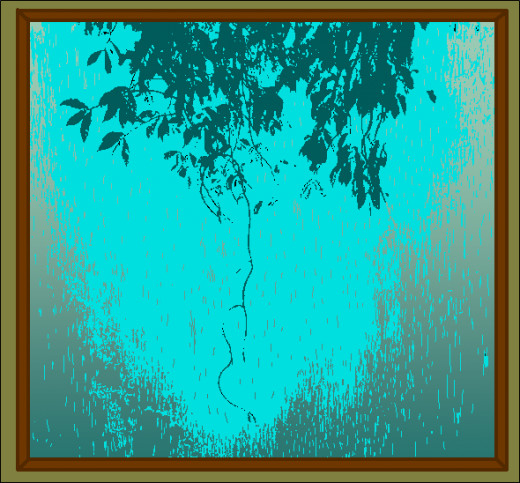
"Thanks, Charu. Now that funding has been arranged, we can get cracking with our plan of action."
"What do you plan to do next?"
"I will need some inputs from your mind-mimicking model to ascertain as to what could be the possible moves of our adversary. Ours will have to be accordingly tweaked. The overall scheme is to get the man we have saved to switch loyalties. Generally, our code of conduct prescribes that we don't open our mouth even at the pain of death at the hands of an adversary. However, if the person we work for makes an attempt on our life and we survive; it is deemed that we have discharged the debt that we owe to him with our blood. That we did not die is an act of providence, but we are free men from then on. For some, the sway of loyalty to their own word of honor is so strong that, even after having survived such an attempt, they refuse to talk. From what I hear about this man, he should come over to our side. We then piece together a plan based on the inputs that he provides and the information that our people have gathered, and lay a trap for Hemant Rajvanshi. If we are successful, we frame him alone and not I. The god-man will surely use the opportunity to get rid of Hemant, which will make our job of nailing our primary target so much easier."
"But isn't god-man I our prime target?"
"Look, Charu. In this game of people management, one should be realistic. If something cannot be achieved now, take the next best and leave what you wanted for later. Otherwise, there would be no movement forward at all. By nailing Hemant, you would have put the fear of God into that god-man and he would be sure to treat his devotees with less callousness henceforth, which will certainly be a step forward in the right direction."
"So, there is nothing more to be done until tomorrow morning, I suppose?" asked Charu.
"Yes. It has been a long day. All of us could do with some rest. If there are any developments in the meanwhile, just give me a call," said Jerry, mounting and starting his motorbike in one lithe motion, and zoomed away.
* * *
Charu narrated the day's happenings to Snigdha. They couldn't sit at their usual place by the pond-side as it had been continuously drizzling and the little pond was in spate, overflowing its banks and discharging the excess water into the grilled manhole that led to the storm water drain under the main road.
"It has been one of the most eventful days of my life," said Charu dropping on the bed, completely exhausted.
"Yes, I know. I already have an idea of how it would have been. There were two men loitering about the gate since the afternoon. Then another came in carrying some medicines and said that he had been asked to deliver it here for the man who had been operated upon. I sent him away saying that he had come to the wrong place. And then came another, dressed in a police uniform, saying that he had information about a possible intruder out to harm Charuchandra and his family members. He just wanted a quick look around all the rooms, which he did and went out. All this pointed to the likelihood that you had stirred up a hornet's nest."
"Why didn't you call and tell me this immediately?" exclaimed Charu, sitting up. "Hemant suspects that we have his man. We need to act quickly."
"Didn't want to unnecessarily alarm you," replied Snigdha. "But what is this all about?"
"Will explain all to you later," said Charu, trying to reach through to Jerry at once. Apparently, the other man was still on the way and did not respond. Charu started the laptop and set the model to analyze what his late uncle's response would have been in this situation. His earlier success made him believe that Hemant's thought process was not very different from that of Svamicharan Chimalgi.
The response that flashed said, "Abduct a member of the family of the one who is suspected to be harboring the fugitive and negotiate a settlement."
Charu surmised that the fact Hemant had not made a move yet, indicated that the drug peddler's suspicions had not yet crystalized. They had to pre-empt him from taking any precipitate action.
Anxiety began to cloud the countenance of Snigdha, who had not realized the seriousness of the situation until then. "You should seek police protection, Charu," she said.
Before Charu could respond, Jerry called.
"Charu, I am going underground. One of my men stopped me on the way and cautioned me against returning to the den. It seems that Hemant's troops have laid siege, because they believe I have the injured sham-priest in my custody. Hemant also paid a personal visit to the residence of the member of the opposition party who had made the complaint against I, to find out whether he is involved in this mess."
"They have been snooping around here too, Jerry. I just checked my model. It says that he is likely to abduct a family member of the one that he suspects and negotiate a swap of prisoners. Do you think I should go to the police?" asked Charu.
"I would advice that you speak to the Minister for Internal Security. Make it out to be a conspiracy by Hemant to topple the government, citing his visit to the opposition member's house today. Then tell him that god-man I may also be mixed up in this plot. If you were to mention that you feel threatened because of your involvement with the enquiry commission, the minister would not go beyond showering you with a few words of solace. Once you have the minister's complete attention with this introduction, weave the story of how you stumbled upon this plan of theirs in the process of investigating the two suspected cases of homicide this morning and also mention that you know the whereabouts of one of the probable assassins and would like the police department to issue a statement that they found the body of a man with bullet wounds along with a list of items found upon his body. I will give you that list. This statement should be there in the newspapers tomorrow morning. Tell the minister that this little subterfuge is absolutely necessary to keep our likely assassin-turned-informer from being killed. If this can be achieved, it will provide us with a breather to plan our counter-moves," said Jerry.
"I must say that it is a well thought out plan, Jerry. You are a veteran when it comes to crafting and solving intrigues. I will do as you say at once, before Hemant decides on some drastic measure," said Charu and called the minister's number.
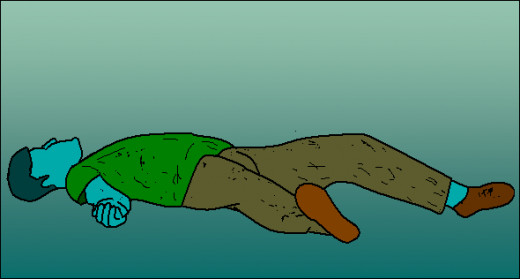
The reaction of the minister was exactly as Jerry had said it would be. He was all ears and told Charu that the commissioner of police would be at his residence within the hour and do the needful. He also assured Charu full protection, commending him for being so loyal to the party and the government in its time of need.
A front-page report in the newspaper the next morning carried the photograph of a man's body wearing the dress that the sham-priest wore last. The report also meticulously mentioned all the articles that were supposedly found on the person of the dead man with bullet wounds. It said that the man's face had been crushed under the wheels of a vehicle and was unidentifiable. Efforts were on to trace his antecedents based on his belongings.
That this endeavor was successful was borne out when Hemant's men lifted the siege on Jerry Ranga's den. They felt that there was nothing more to fear, now that the man they sought was presumed dead.
The police had appropriated an unclaimed body from the government hospital morgue, dressed it in the clothes of the sham-priest provided by Jerry, taken a few photographs, and quietly returned the body back to where it came from.
Things were calm for a few days. The sham-priest recovered from his wounds. Jerry deployed his men to gather more information about Hemant Rajvanshi's movements and activities. A few became temporary salvation-seekers, infiltrated god-man I's hall of instant nirvana, and located the drug dump, as well as marked the men involved in delivering the raw materials for the recipes offered there. They got to know that the sham-priest had been the dispenser of the heavenly concentrate to the seekers at the hermitage and was even otherwise called a priest among the devotees who frequented the place.
* * *
Snigdha and Charu were having their first taste of marital discord, induced by their slightly different points of view about handling the issue of god-man I and the complaints against him. While Charu preferred the typical male approach of going in for the kill when the situation was advantageous, Snigdha favored the preservationist attitude of letting them go with a warning, now that a point had been made.
The rain having taken a hiatus, the couple was able to express their disgust for the other's perspective also on the banks of their beloved pond. The pebbles were pounding the waters fast and thick.
"You seem to have identified yourself with the two families that suffered. Your role was that of a judge, Charu, not a law enforcer. The brief given to you was to find out whether there was any basis for the complaints registered against god-man I. With the sham-priest's likely confession and the information gathered by Jerry's men, it would be established that such was the case indeed. Now, it would be for the police to do their job. Why do you want to don that role as well?"
"I feel that I was partly the cause of their fate and have to redeem myself," replied Charu, a pebble issuing forth from his clenched hand like a bullet toward the water surface.
"Then you were also responsible for the sham-priest's plight, and will be so for whomsoever that may be injured, maimed, or killed during what you set out to do. Aren't you worried about that?" asked Snigdha.
"I don't consider myself responsible for them."
"But I do."
"You are not the chairman of the commission of enquiry."
"I never said so. All that I was trying to impress upon you was that it was beyond you to have saved those who died a few days ago. By your line of thought, the responsibility for their death lies with that opposition party member, who made them a ruse to mount pressure on the government. It lies with Hemant Rajvanshi who had no qualms in ordering for their elimination, the sham-priest only being a tool. When they don't care or feel responsible for what they did, then why should you when you had no ill-intentions towards them?" demanded Snigdha.
"Don't my feelings count?" retorted Charu angrily.
"Of course they do, dear," said Snigdha, relenting a little and fearing that the skirmish would escalate into a full-fledged war.
The holding of fire from one end prompted a similar response from the other side. "I have issued summons to god-man I to appear at the commission's office tomorrow to answer questions," said Charu, in a calmer voice.
Snigdha felt that this wasn't a wise move, but did not express her sentiments. The ball had been already set rolling and she could have done nothing to stop that.
Just then, there was a call for Charu and he answered it. It was the Minister for Internal Security.
"I gather that you have summoned the god-man to your office tomorrow. Is that so?" asked the minister.
"Yes, sir."
"I suggest that you visit him at the hermitage instead."
"Why should I, sir? That would be a breach of protocol. I am within my rights to summon him."
"You certainly are, my angry young man. But you also have to consider the sensitiveness of the situation. Our opponents have been lulled into believing that we are not aware of their activities. Our immediate target is Rajvanshi. If we get him, the threat to our government would have been neutralized. Don't antagonize the god-man now and open another front of hostility. We will only be playing into the hands of our enemies. Go to the god-man tomorrow, be cordial, and drop a hint that the government is unhappy with reports that his hermitage is being clandestinely used by those opposed to it. I will make it known through relevant channels that you have my backing in whatever you say," counseled the minister.
"Yes, sir. I will do as you advise," said Charu relenting from his rigid stand. He began to see reason in what the minister said, but also realized that the minister said so more because of his concern for the government's stability than any consideration for Charu.
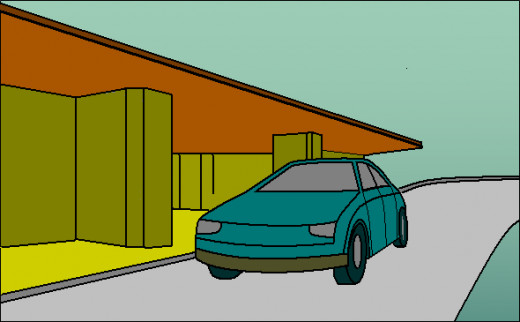
The speaker connected to the telephone receiver had remained switched on, enabling Snigdha to listen in on the conversation.
"I agreed to do as he advised only because it supported my point of view as well," he told his wife, defensively.
"Everyone does that, Charu. You don't have to feel guilty about it. I advised restraint only because a strong action from you against god-man I or Hemant Rajvanshi, would affect our marital life. If we hadn't been married and our lives were not intertwined, it is unlikely that I would have been so vocal or persuasive about my point of view."
"Is being and feeling responsible wrong?"
"I would say that morality is like religion. It can warp an individual's instinctive responses to the point of self-destruction. You saw how the members of the two families were led astray by such a warping of their natural instincts or the manner in which the sham-priest brought trouble upon himself and is likely to get some more by his vengeful switching of allegiance. But I suppose none of us can change our way of thought and decision making process. By your theory - which appears to be working so far - our primary responses to stimuli are conditioned by our inborn preferences that are recorded in our unconscious. Advise from others can only alter them marginally."
Charu felt strange being quoted at from his own theory, but it also convinced him that he was taking the right step, giving due consideration to the counsel from the minister and Snigdha. The relics of the short-lived conflagration between husband and wife were swept away by the soothing breeze of tender togetherness that meandered across the pond and its surroundings.
* * *
It was a Charuchandra, hovering between the states of confidence and nervousness, who set out in his official car to god-man I's hermitage, accompanied by Jerry Ranga. Though Charu was yet to fully comprehend the importance of having a grim and nasty-looking toughie by his side in such situations, Jerry was well aware that a lone Charuchandra would appear like a lost sheep in the company of hungry and wily hyenas, who would only be waiting for an opportunity to tear it apart. It was like police officers seeming to be ordinary persons without batons in their hands, guns tucked inside holsters on their hips, and shiny badges across their breast-pockets and shoulder flaps, which gave them a semblance of authority.
Alighting at the hermitage's swank lobby, Jerry set the pace - from behind - with his swaggering gait and measured steps, while Charu gamely kept up ahead, struggling to match his footsteps to the uniform beat of Jerry's hard-heeled ankle-boots. They had achieved an enviable rhythm by the time they reached I's presence, and made an impressive entry.
I was seated on his peacock throne. A diminutive man, he was dwarfed by the throne's immensity. To his left, sat Hemant Rajvanshi on a little side stool. The man was huge, and the stool was almost invisible under him. Neither rose to greet their visitors. I was a god-man and shouldn't have. Rajvanshi despised Charu and wouldn't have.
"Greetings, my friend. We are honored to have you here and my hermitage is blessed by your presence," said I, with a welcoming smile.
Rajvanshi looked at I sharply. The eyes of many others too fleetingly darted in the god-man's direction in surprise. Jerry had mentioned to Charu that the god-man was in the habit of addressing visitors and devotees as "my child," whatever may have been their age. That he deviated from this standard protocol, indicated to Charu that the influence of the minister and the forbidding presence of Jerry by his side were at work, the balancing bulk of a glum Rajvanshi by the god-man's side not withstanding.
"Greetings to you too, the Most Revered I," responded Charu, which made all eyes dart towards him. The general expectation was that there would be fireworks, when the two adversaries met, while what transpired was a show of extraordinary camaraderie, which made the attendants present there to explode into activity and arrange for seats and refreshments for the guests.
"I hear that you are an angry young man with a mission, Charuchandra. It is nice to see such people in public service. I pray that you rise up to adorn higher positions in the government," said I, continuing on the path of compromise that he had set.
Hemant Rajvanshi's embarrassment was now clearly visible on his countenance. "Your trust appears to be misplaced, Revered I. This man hasn't come to the hermitage seeking your blessings. To denigrate you, is his intention. Do not entertain him," interjected the drug-peddler.
"With all the veneration due to you, Revered I, I wish to bring to you kind notice that there are people here who use your virtuous hermitage for their own sinful ends. It has been suspected that the same people are plotting against the government, and I have been asked to caution you to be wary of such false devotees. I hope that you will not take my statement to be an indictment of this hermitage or your exalted self. You only see the goodness in all, even if none exist in some," said Charu pointedly.
Hemant Rajvanshi squirmed on his little stool, which squeaked piteously.
"I assure you and the government, my friend, that I will strive to maintain the purity, decency, and integrity of this place. You need have no doubts on that score," replied I.
"With such an assurance from one who represents holiness itself, I can go back with an easy mind, Revered I. Permit me to take leave," said Charu, eager to finish the interview and stop the unnatural manner of speaking.
"It is my hermitage that has been fortunate to have had a visitor such as you. We will be looking forward to your regular presence here, my friend," said I, with a satisfied smile.
After another round of ceremonious and long-winded leave-taking, the guests departed.
"Why did you have to be extra-civil to that upstart?" demanded Rajvanshi, even before Charu and Jerry were beyond earshot.
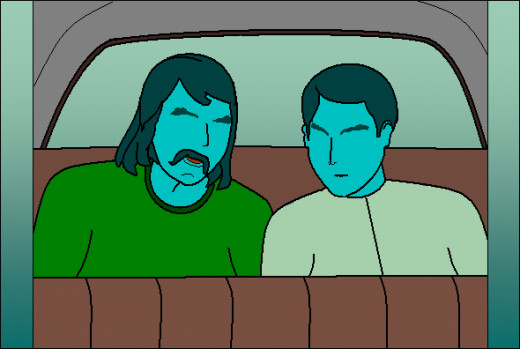
"There are times for strong-arm tactics and others when diplomacy is the need of the moment. This was one such time where a distinction had to be made. You may be good with the former approach, but are woefully lacking in the latter," replied I, frostily.
"I can smell the disgusting odor of deceit and backstabbing in your conduct," remarked the huge man, angrily.
"The source is more likely to be yourself, as you are steeped in them more than I can ever imagine myself to be. Go and wash yourself well, before you seek another audience with me, my child," said I, getting up from his throne and walking away into his gilded private chambers.
The glaring eyes of Hemant Rajvanshi followed the god-man until his frame went past the entrance and the doors were shut.
* * *
"You will make a better politician than your uncle, Charu. You did superbly at the interview. I was wondering whether I was with same person that I knew a couple of years ago - incommunicable, aloof, and diffident," remarked Jerry, as he and Charu were returning from their visit to the hermitage.
"I suppose one learns to swim in deep waters, when the only other alternative available is to drown," replied Charu.
"The immediate hazard from god-man I is neutralized and from what could be seen in the manner of Rajvanshi's behavior, I am fairly certain that a wedge has been driven between him and the god-man. The drug-peddler will not trust I anymore. But, the thing to worry now is that Rajvanshi is sure to come hard at you. He will consider you to be the prime cause of all his troubles," opined Jerry.
Just then, their vehicle crossed the area where the house of the elderly couple who had been poisoned by the sham-priest, was located. Charu's bitterness at his failure to stop that incident, which had only been suppressed and not neutralized by the arguments of Snigdha, Jerry and the minister, was reawakened and surfaced from deep down.
"It is he who has to be wary of me, Jerry. If your inference is correct and he has indeed fallen out of favor with the god-man, then he will be very vulnerable now. Word would already have gone around that he is hand-in-glove with the opposition, based on the yarn that you had asked me to spin to the minister to get him interested in the affair. I intend going after him and completely wreck the man and his infrastructure. That will be an ideal expiation for my earlier blunder," said Charu, in a voice that conveyed a host of emotions at the same time.
"Since you seem to regard my advice, let me give you another bit of it, Charu. Speaking in your language, politics is the closest to what you identify to be the original religion of evolution. It restricts itself to the prime ideals of preservation and propagation and is not swayed by the extraneous considerations of the other lesser religions. Practice of politics demands that you do not carry along baggage from the past, take each day as it comes, and mold yourself to suit the requirements of the moment. That is the skill of survival, the art of adaptation, the perspective that is necessary to be proficient in propagation. You are right in deciding to go on the offensive against Rajvanshi because he is your immediate threat. There will be only one winner in this contest and it better be you. But keep in mind that sometime in the future, he may be an ally, which will be the need of the circumstances then, from your point of view. Let not the sentiment of uncompromising hatred, cloud your dealings with him. Harm Rajvanshi only as much as is necessary for neutralizing the situation now."
Charu remained silent and thoughtful for the rest of the journey. When they reached his house, Charu invited Jerry in. "Let us plan out our next move sitting by the pond-side," he said. It went without saying that sitting by the pond-side included the other inseparable activity of throwing pebbles into its waters.
* * *
Over the following week, raids were conducted by the police on all the dens of Hemant Rajvanshi identified by Jerry's men. The drug-peddler had taken precautionary measures to guard against such an eventuality and had removed all articles that could implicate him in being associated with those premises or the men employed there. Despite his strained relations with god-man I, Rajvanshi found the hermitage the ideal place to move and secret all his important documents and merchandise. He knew that god-man I would not dare to openly condemn him and turn hostile. If it were to be so, the god-man would be hard-pressed to explain how such a lot of clandestine stuff got into the hermitage without him being aware of it. The god-man too played along apparently for this reason. But unknown to Rajvanshi, I had been privately told by sources close to the minister to let the big man continue with his activities, until the police made their move to arrest him and was assured that his name would be kept from being involved in this affair.
The climax to the affair happened on another rainy day. The sham-priest had sufficiently recovered after the surgery to remove the bullet from his stomach and the police considered it an opportune moment to strike. Rather, it was the political bosses of the police who thought so. With a series of important Bills to be passed in the legislative assembly, the defeat of even one of which could prove to be an embarrassment for the government, hastening its downfall, the powers that be wanted to remove all deadwood from their midst that may have caused a further spread of rot.
An arrest warrant was issued against Hemant Rajvanshi and a team of high-ranking policemen were dispatched to the hermitage where the marked man was reported to be. They were accompanied by the sham-priest, well coached by his handlers on what exactly was to be said to implicate the main accused, in return for a light sentence for his role in the plot and adequate monetary reward.
Charu was also asked to be present at the hermitage at the time in his capacity as the chairman of the committee probing the charges against god-man I and his associates. After the planned arrest of the drug-peddler, based on the confession by the sham-priest, Charuchandra was to declare the god-man innocent of all misdemeanor, with the blame entirely transferred upon Hemant Rajvanshi. The commission was to be wound up immediately afterwards.
Charu, was now convinced that Hemant Rajvanshi's persona almost matched that of his late uncle and the decision-mimicking model that he had developed for the deceased man worked as well for the drug-peddler. Simulating the possible scenarios at the hermitage later in the day, Charu had come upon a very disturbing result. It was that, Rajvanshi would attempt suicide, because all avenues to wriggle out of the situation would have been closed for him. He had shared his fears with Jerry, who cautioned him against mentioning it to anybody.
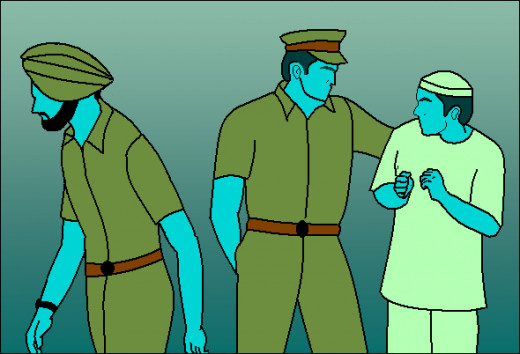
"Would an outcome such as the one that your mind-mimicking model describes, effect you adversely in any way?" Charu's mentor had asked.
"Unlikely," Charu had replied after some thought.
"I think so too; in which case, you should let things happen as they would. Never place all your cards on the table. Keep them close to your chest for as long as possible," advised Jerry, using his favorite game and pastime as a metaphor.
All seemed to be progressing as planned for the day, until one of the police officers deputed to the team that was to arrest Rajvanshi, and who was also an ardent devotee of I, tipped off the god-man about the sham-priest being alive and his being brought to the hermitage to give evidence against Rajvanshi.
God-man I panicked. He had been the most relieved when the picture of the body of a person, reportedly of the dead priest, was featured in the newspaper a few days back. The drug-peddler too had been pleased seeing it, but I believed that he had more at stake and more to lose if the sham-priest had been alive. The news that this was really so, brought back all his terrible fears. He called Rajvanshi for a quick meeting, the common threat bringing the recently estranged friends together again.
"The priest is alive and is in police custody. They are bringing him here to accuse you. It will be in the best interest of both of us to get rid of the priest before he does so," said I, opening the dialogue of reconciliation.
"Who told you this?" asked Rajvanshi.
"One of the police officers who is coming with the team."
"Then get this officer to kill the priest."
"How?"
"I will tell you how," replied the drug-peddler and outlined a plan, which appeared to be safe and executable to the god-man also. "I will do as you say," he agreed.
"But you have to bail me out in return," demanded the other man.
"Of course! We swim or drown together," said I.
"I will not give you away and confess that you were not aware of my activities at the hermitage. But you will have to use the new connections that you have established with people in high places to make certain that I get away with a light sentence and get proper treatment when put behind bars."
"I can surely manage that, Hemant," assured the god-man.
The new pact of friendship was sealed in thought and words. Both knew that it would last only until such time that it was mutually beneficial and silently enumerated the information and opportunities that each had to force the other to adhere to their respective roles or double cross the other. It was always the survival of the fittest in terms of using available prospects to their advantage. Or was it?
* * *
The drama unfolded at the prayer hall of the hermitage, as scripted. The god-man was seated on his peacock throne on the dais, while Rajvanshi was precariously perched on his dwarf stool next to him, when the posse of policemen entered with the grim looking sham-priest sandwiched between two burly officers, one of them being I's informant.
"What is the meaning of this, Officers?" asked I, in mock surprise.
"Pardon us for this intrusion, but we have come to arrest Hemant Rajvanshi, Revered I," said the officer in charge.
"What is he being accused of?" asked I.
"He has been using your premises illegally for his clandestine activities, which we are sure is without your knowledge."
"Do you have evidence of his misdeeds?"
"Yes, our informants have located a cache of banned drugs here and we have a witness here - who was one of your former employees, presumed dead - but who was actually working for the accused. He has now turned approver after the accused sent his men to kill this man due to personal enmity," said the officer pointing to the sham-priest.
Charu had been watching the two men on the dais. There had been no genuine sign of surprise on their faces on seeing the sham-priest. It could only mean that the two were aware of the script to be played out in advance, the young man deduced.
And then things began to deviate sharply from the original plan of action. The sham-priest was seen to remove a gun from his pocket, aim at Rajvanshi and yell, "You will pay with your life for attempting to kill me, you evil man!"
The three other officers in the team were aghast at this development. Only god-man I's informant seemed calm, as his hands went to his holster, whipped out his service revolver, and aimed at the sham-priest.
Charu realized what was happening and shouted "No! Don't kill him."
Jerry Ranga moved with lightning speed, as if on cue, and elbowed the police officer hard, who staggered and fell, the revolver slipping out of his hand to the floor. The sham-priest too was confused when the enactment deviated from what had been drilled into him a short while before reaching the place. He quickly pocketed his gun that had no bullets in it, and tried to help the fallen officer to get back to his feet. The other three officers had by this time their own weapons on the ready.
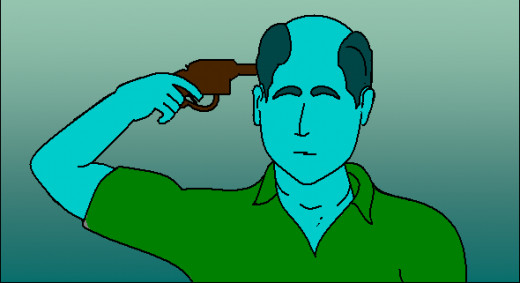
God-man I and Hemant Rajvanshi were hysterical. A living sham-priest would spell doom to both of them.
“Kill him!” said the god-man, hoarsely.
Rajvanshi, carried away by the sudden turn of events, pulled out the weapon that he always kept handy with him and shot the sham-priest dead. It was only after the deed was done that he realized that he would now be liable for prosecution for the crime of murder in front of witnesses as well. Had he shot the sham-priest, while that man trained the gun at him, his action could have been justified. But he had fired when the threat was past, the officers had the likely assassin covered, and his victim was facing away from the dais. He stood there briefly – suspected, accused, and condemned by every pair of eyes present in the prayer hall, which saw their emotion transform from scorn, to horror and then to pity, as Rajvanshi raised the gun to his temple and shot himself in the head and his huge bulk collapsed on the wooden floor of the dais with a loud thud.
* * *

Chapter 7: Thought and Event Chains

Chapter 8: Bonding and the Bonded

Chapter 9: Made-to-order Conscience

Chapter 10: To the Brink and Beyond

